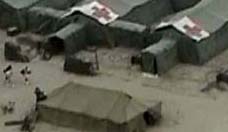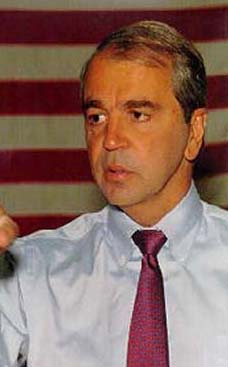
A Peace Corps veteran first clued me in to understanding that repeated culture shock is a normal part of traveling. She was a doctor who had served in both Africa and South America. She said that although most people are prepared to expect some differences in standard of living or customs, many are not prepared to accept those differences for any length of time. They will try to impose their own standards, even when it is counterintuitive. They will insist on doing things their way and refuse all advice or offers of help. She illustrated her story by telling about the time they planted crops in an area that flooded when it rained. The natives advised against it, even refused to help them, but the volunteers went ahead with the plan because after all, they were the agricultural experts. Sadly,the entire crop was eventually swept away.
Learning From Culture Shock
Learning From Culture Shock
Linda Bouchard
By Linda Bouchard
August 13, 2005
By definition culture shock is 'a condition of confusion and anxiety facing a person in an alien culture or milieu'. Most seasoned travelers would like to think they are immune to it. Some people never know when it hits them. In fact, to admit to culture shock almost seems like an admission of failure.
The truth is that we are all subject to culture shock at one time or another and it can happen at home or abroad. For example, a friend of mine owned a house near a military base where her new Korean neighbors hung raw fish on the fencing and in the trees to dry. The smell was disgustingly overwhelming on a hot Texas day and the sight was not pleasant. She couldn’t imagine why they would want to use their home as a fish processing plant and they couldn’t imagine where else they should do it or why it was any of her business.
Aside from the dictionary definition, how does one recognize culture shock? How do we know when we’re ‘not handling it’? One of the first signs I have noticed is people trying to blend into the host culture and become invisible. Some people think this makes them less conspicuous and therefore less subject to the source of their anxiety. Oftentimes they will refuse to make eye contact with others, especially other foreigners, lest it give them away. The result of these tactics is usually quite the opposite and can lead to self-isolation when the anxiety proves too much to handle. If this goes on for too long, hostility toward the host culture is the next step and is accompanied by a feeling the natives are hostile and unfriendly to visitors.
A Peace Corps veteran first clued me in to understanding that repeated culture shock is a normal part of traveling. She was a doctor who had served in both Africa and South America. She said that although most people are prepared to expect some differences in standard of living or customs, many are not prepared to accept those differences for any length of time. They will try to impose their own standards, even when it is counterintuitive. They will insist on doing things their way and refuse all advice or offers of help. She illustrated her story by telling about the time they planted crops in an area that flooded when it rained. The natives advised against it, even refused to help them, but the volunteers went ahead with the plan because after all, they were the agricultural experts. Sadly,the entire crop was eventually swept away.
There will always be days when one would kill for an ice cold drink or a Western toilet with working plumbing. You will suffer temporarily and survive. But what if you have to walk through a meat market everyday where live animals are being slaughtered and blood flows in the street drains? What if you don’t understand the language, or the system of barter and trade? Or my own personal experience - what if you fall, gash open your knee and everybody laughs hysterically instead of offering some help? That’s when we are tempted to say, “Why don’t they …?” or, “How can they …?” or even, “What’s wrong with these people?”
Young female tourists in Morocco are often subjected to intense male harassment in the form of verbal remarks or explicit come-ons while on the street. At first it is a novelty, but soon it becomes wearing on the nerves. Women who cannot learn to block out the unwanted attention or take it in stride will soon avoid going out alone or going out at all. Most never realize that Moroccan women, too, get the same kind of attention and either ignore it or respond with a laugh. The harassment is not an insult directed specifically at foreign women although it is often interpreted and explained that way. Street harassment is not considered polite and respectful behavior toward women by any standard, but it exists and there is a way to handle it without letting it ruin an otherwise great visit.
The anthropologist Margaret Mead studied three tribal groups of people in her earliest days of field work. She noted that one tribe, the Mudugmor, was aggressive and fierce – both the men and the women. They neglected their children who had to fend for themselves and they even threw their unwanted infants in the river to die. Dr. Mead was shocked. But she did not try to change their behavior or impose her values on them. They wouldn’t have cared even if she had tried. Nor can we as tourists impose our values or our behavioral expectations on other people. We will be disappointed with the response every time. Most likely they won’t like our customs anymore than we like theirs.
Culture shock is bound to happen. People are too diverse and the world is too big. We can learn to appreciate differences without accepting them, adapt to a situation or say no thank you when something doesn’t suit us, and be grateful for the chances to learn about new things and meet new people. Culture shock can also serve as a signal that we need a moment to stand back from our judgments. If we can do that, we just might learn something about ourselves as well as others.











